Explore the ScaleUp Annual Review 2022
Select a section to expand and explore this year's review..
CONTENTS

Introduction 2022

Chapter 1 2022
The ScaleUp Business Landscape

Chapter 2 2022
Leading Programmes Breaking Down the Barriers for Scaleups

Chapter 3 2022
The Local Scaleup Ecosystem

Chapter 4 2022
The Policy Landscape

Chapter 5 2022
Looking forward

Annexes 2022

SCALEUP STORIES 2022
Talent and Skills
Access to talent and skills remains a significant challenge for scaleups as we move into 2023, with 7 in 10 scaleups (72%) saying that access to talent is vital, or very important, to the continued scaling of their business and 1 in 4 ranking it as their top priority.
The scaleups responding to our survey employ over 12,400 individuals and 7 in 10 are seeking to grow their headcount again in 2023. They seek talent from all parts of the labour market – employing a mix of graduates (69%), post-graduates/PhDs (48%), and school leavers (40%). Three quarters offer either apprenticeships or work experience, while one-third (35%) offer internships.
Scaleups are hungry for skills to fuel ongoing growth and are conscious that they need to adapt to make themselves appealing employers and ensure that they offer quality jobs to attract and retain talented individuals. As such the vast majority (8 in 10) are increasing their investment in training and reskilling as well as focussing on enhancing “Employee Experience” (e.g. the package of support of how they train and retain staff, build the organisational culture and provide non-financial rewards such as health memberships, social activities, and negotiated discounts). Continuing trends seen throughout the pandemic, 7 in 10 scaleups are offering their staff flexibility over work location and 6 in 10 are seeking to improve job quality through automation of certain tasks and roles. Only 1 in 5 is currently adopting or planning to adopt a 4 day working week.
As well as being significant UK employers, scaleups also attract international talent, with 42% employing staff from the EU and 36% employing staff from outside the EU. With 23% saying that a quarter or more of their staff come from outside the UK, maintaining access to these talent pools is considered to be essential – 6 in 10 of those currently employing staff from the EU say it is vital or very important for them to continue to be able to do so; alongside 5 in 10 employing staff from elsewhere. The new fast track visa launched by Government in 2022 is considered to be an important mechanism to facilitate access to overseas talent with 4 in 10 scaleups believing that this will be vital or very important to their business.
Scaleup Skills Needs
Scaleups demand a wide range of skills. Social skills continue to be the most sought after from graduates and school leavers: 72% rank social skills as the most important, while 6 in 10 desire young people with management and technical skills.
When looking to the future and skills that employees are predicted to need by the World Economic Forum, scaleup leader consider many of these softer, transferable skills to be vitally important to their business. However they are particularly keen to source individuals with the ability to work effectively with and manage others (80%) as well as those who are able to demonstrate resilience and flexibility (77%). Critical thinking and judgment, cognitive flexibility (being able to think about more than one thing at once), and emotional intelligence are considered important by 7 in 10 scaleups. Perhaps unsurprisingly given their proclivity toward innovation and exploiting technology, 7 in 10 scaleup leaders are seeking individuals with the ability to work with and adapt to new technologies.
As seen in recent years, scaleups are less confident about whether or not their workforce will have these skills in the future. Across the board confidence levels are around the 50% mark with a particular gulf in confidence of obtaining people management skills. Confidence dips below 50% when considering cognitive flexibility and emotional intelligence (both 49%) and falls further with regard to negotiation and persuasion skillset when fewer than 4 in 10 (39%) are confident in sourcing these skills. However scaleups are far more assured about their ability to find individuals who can adapt to new technology (61%). Closing the need-confidence gap for key skills will be important for scaleups recruiting for the future.
Across their current workforces, 8 in 10 scaleups are experiencing difficulties in finding the right people either for a specific role or with a certain skillset. These gaps emerge particularly in highly technical professions such as engineering and manufacturing but also for more broad business skills, like project management, finance and HR, as well as for sales and marketing – where employers are frequently seeking a unique blend of skills often incorporating a level of technical expertise alongside sales acumen or the ability to manage a team. Skills gaps also persist in the use of digital technology with a particular focus on the importance of digital marketing and data analytics.
In order to recruit to hard to fill vacancies 51% of scaleups are looking overseas, with the EU by far the most common location for recruitment followed by North America. However this does not always mean relocating these individuals to the UK with around 1 in 5 scaleups (17%) having more than 10% of their workforce based overseas.
Enhancing the skills pipeline and upskilling current teams
The education system has a critical role to play not only in equipping young people with the skills they need for the future but also in guiding career choices and supporting scaleups develop the skills of their current workforce.
Scaleups are seeking greater support to take on new employees and ensure that they possess the right mix of skills and attributes. Improving careers education is a critical need with 65% of scaleups wanting students to be better informed about the opportunities that exist in scaling companies like theirs, there is also a desire to see increased number of encounters with students (58%), enhancements made to the curriculum to increase relevance to current business needs (49%) and better provision of entrepreneurial education (52%). Alongside this scaleups are seeking further support and funding to enable them to take on apprentices and trainees. Fostering linkages between educators, students and scaleups will enhance the talent pipeline and should be a priority for local, regional and national Governments.
8 in 10 scaleups are increasing investment in training and reskilling. To do this they are utilising a wide range of resources most commonly 82% offer in-house training delivered by their own staff and 58% use mentors. They are also leveraging off-the-shelf online courses (54%) and private leadership or development courses (50%). For more formal learning and development 4 in 10 work with FE colleges and 3 in 10 with universities.
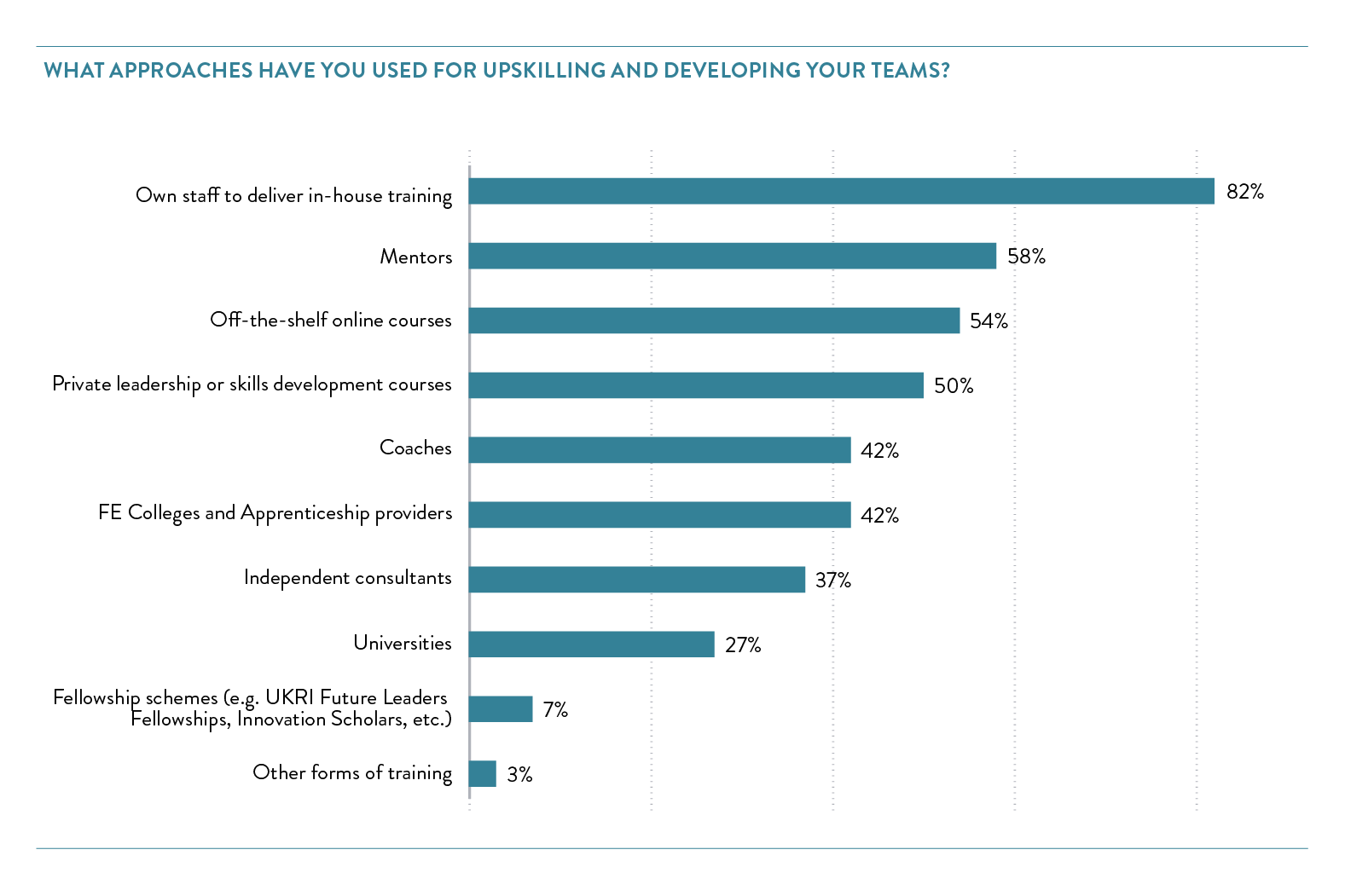
CONTENTS

Introduction 2022

Chapter 1 2022
The ScaleUp Business Landscape

Chapter 2 2022
Leading Programmes Breaking Down the Barriers for Scaleups

Chapter 3 2022
The Local Scaleup Ecosystem

Chapter 4 2022
The Policy Landscape

Chapter 5 2022
Looking forward

Annexes 2022

SCALEUP STORIES 2022

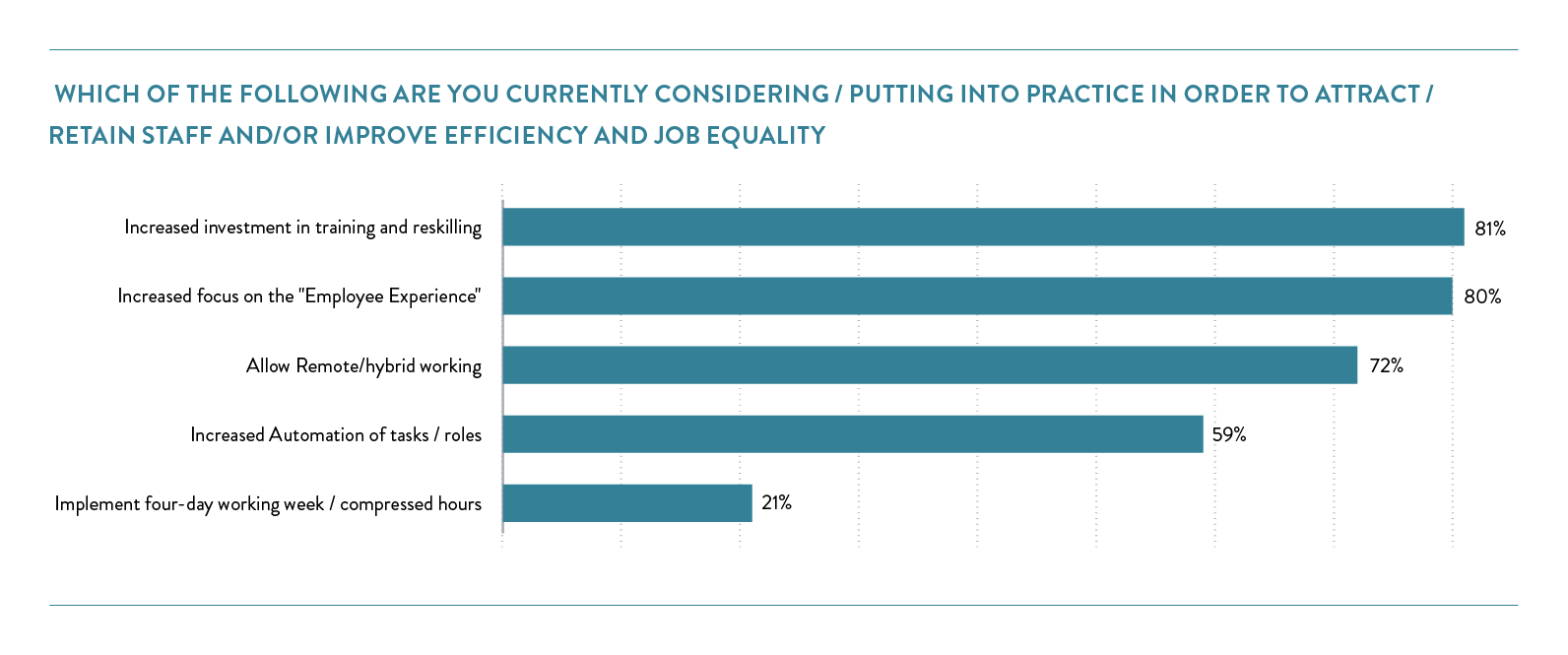
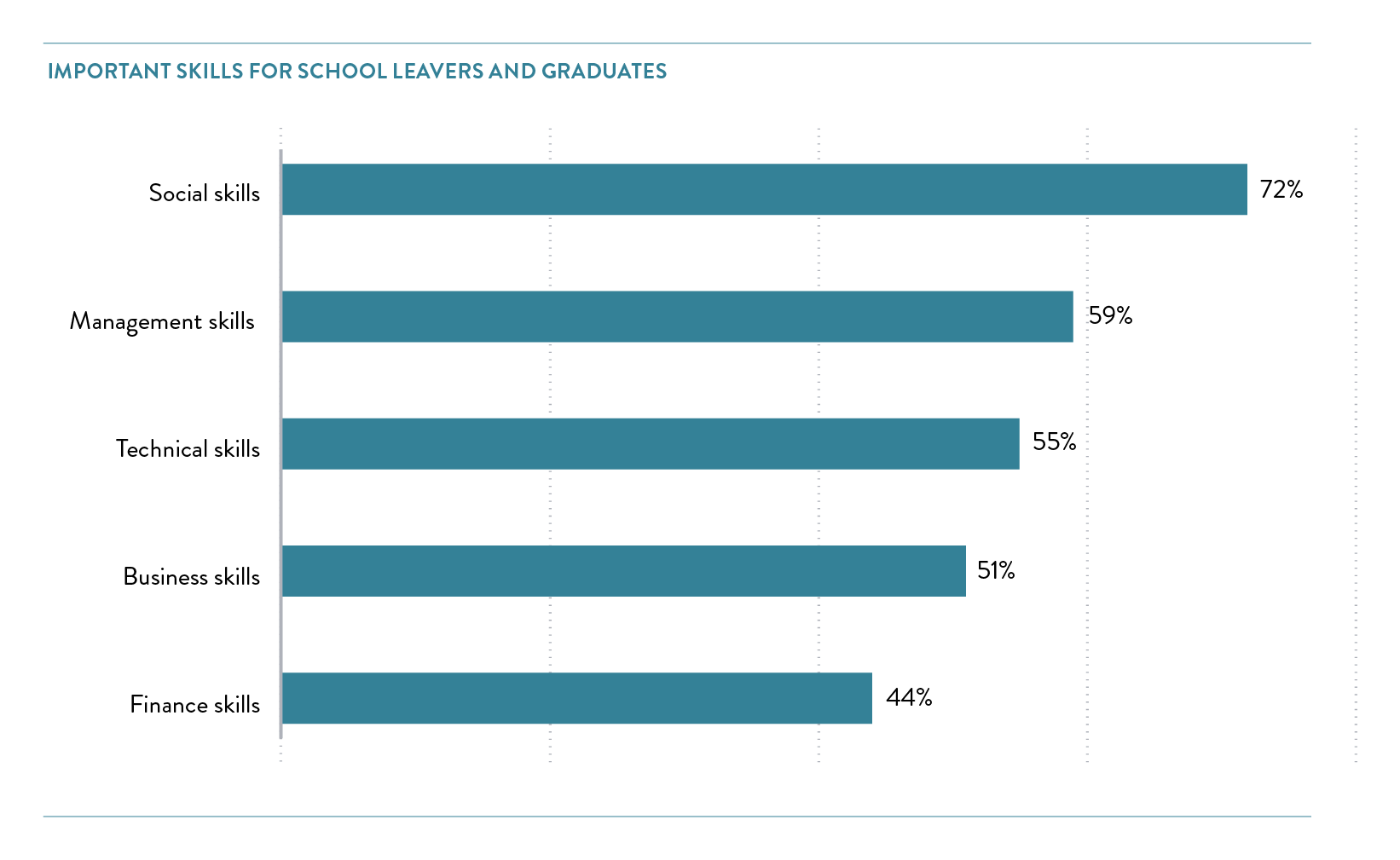
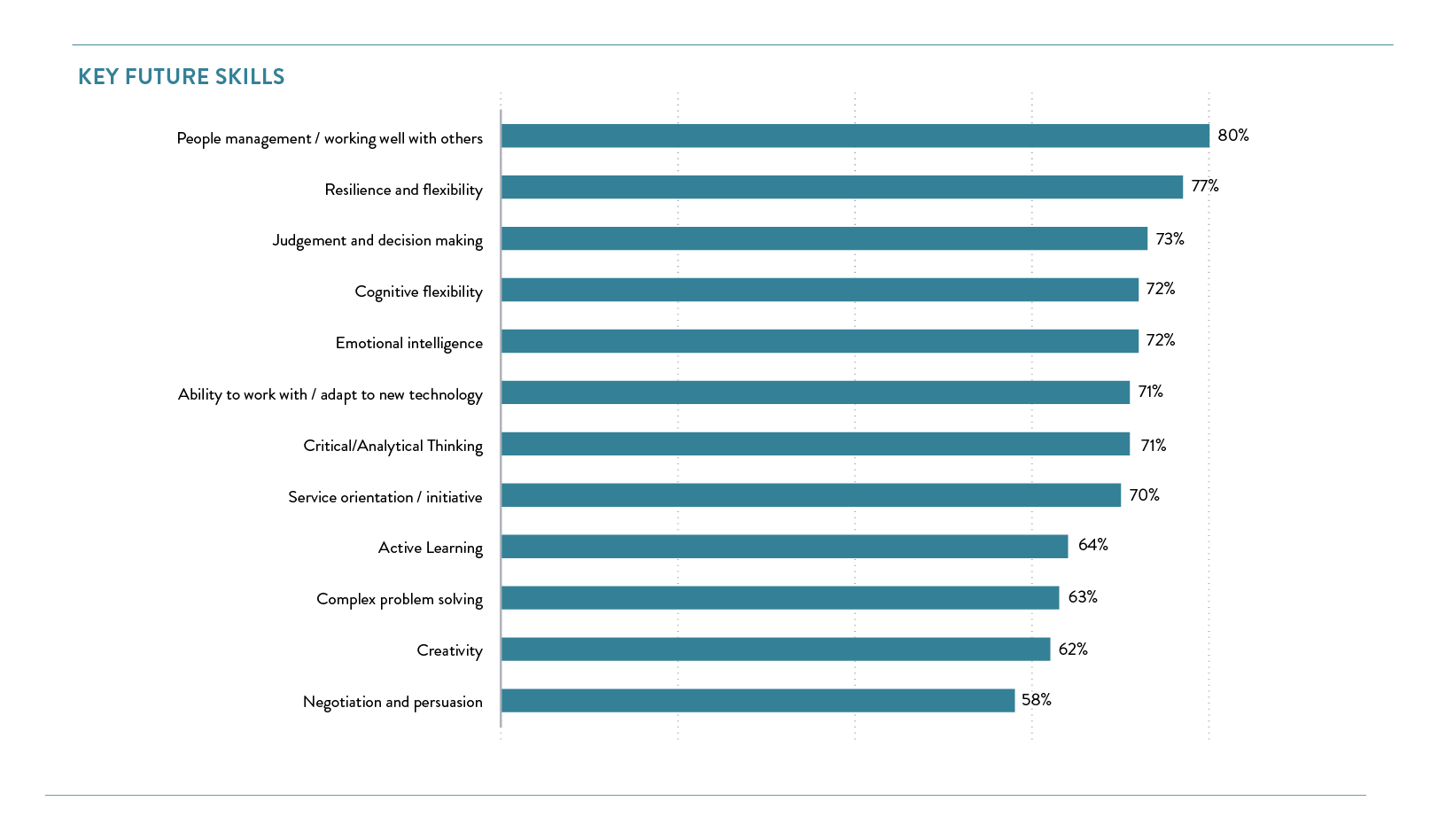
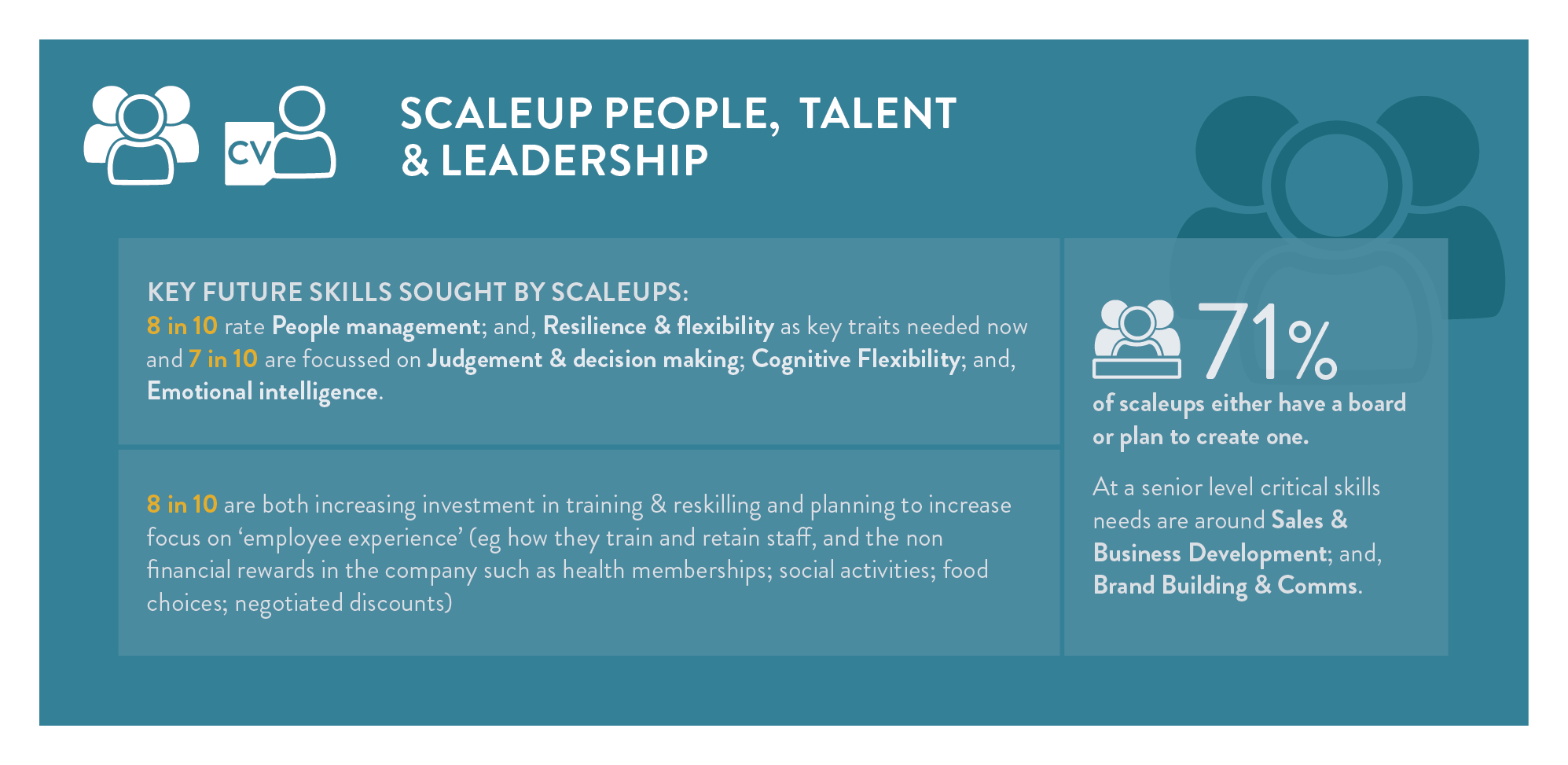
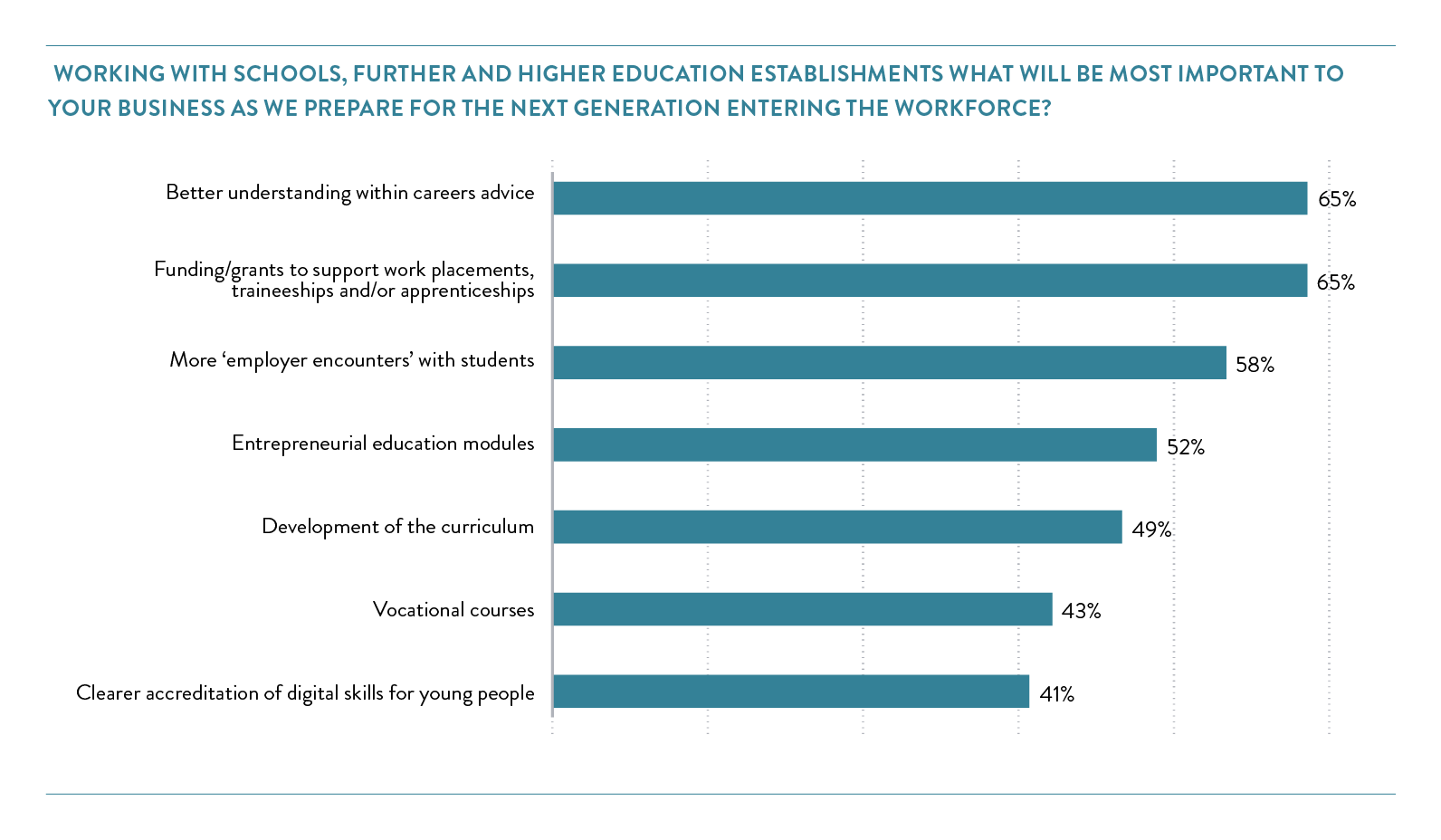
 Previous
Previous

Share